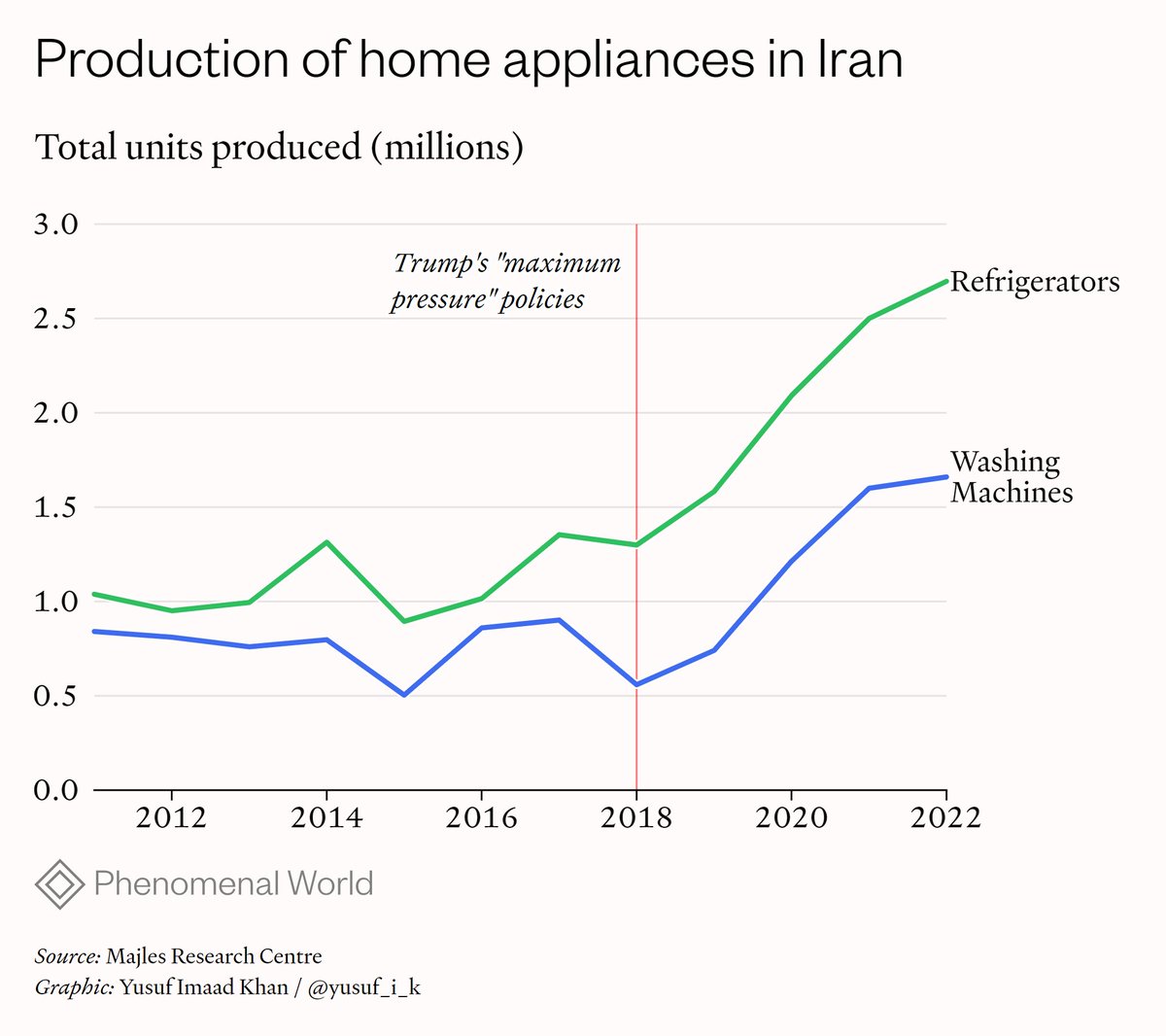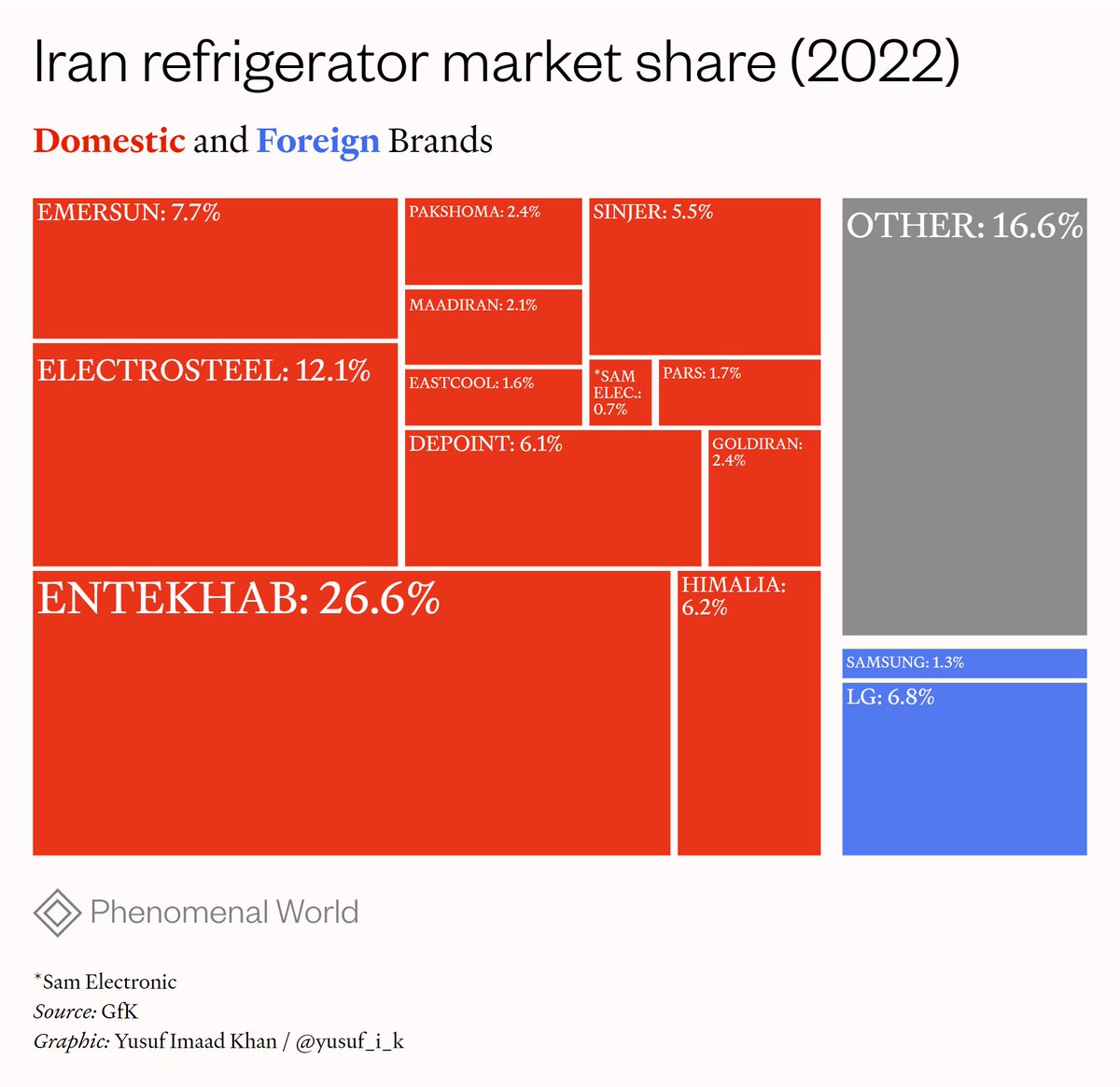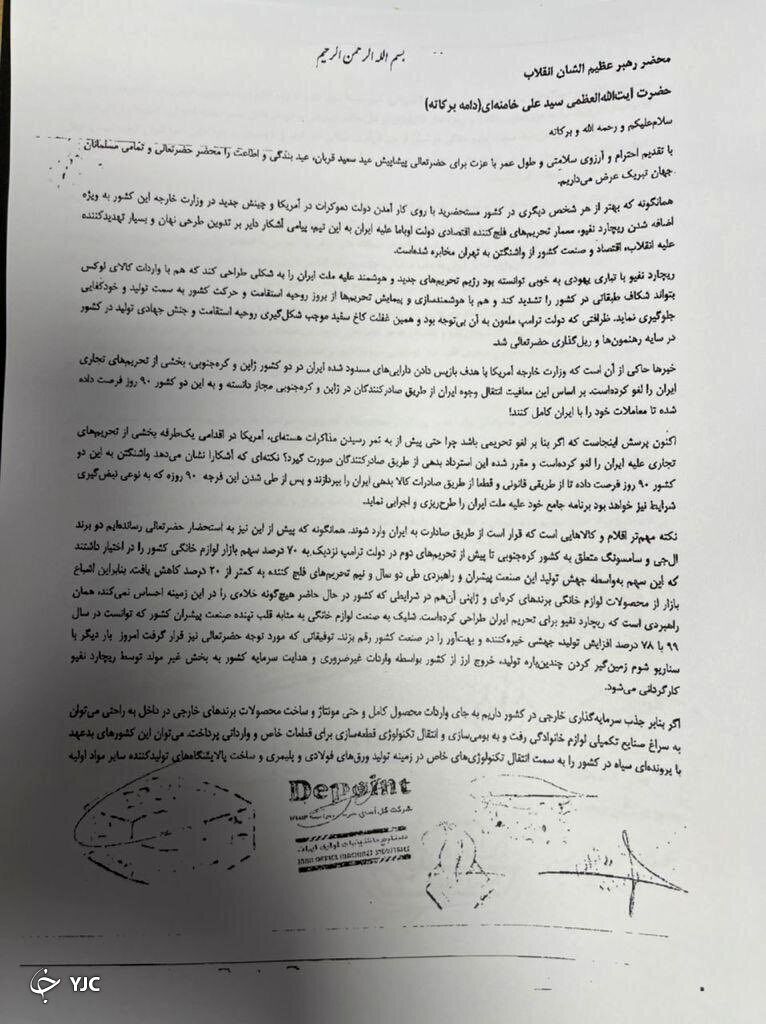1. Sanctions are meant to crush industrial output. But sometimes the opposite occurs.
In Iran, the white goods industry has a problem: sanctions-induced overcapacity.
For @phenomenalworld, @BarzinJafartash and I explore how sanctions and industrial policy can collide.
In Iran, the white goods industry has a problem: sanctions-induced overcapacity.
For @phenomenalworld, @BarzinJafartash and I explore how sanctions and industrial policy can collide.

2. As an oil exporter, Iran has long struggled to develop its manufacturing base.
In the early 2000s, it suffered from a classic case of "Dutch disease." An oil boom led to appreciating currency, more purchasing power, and rising imports at the expense of domestic producers.
In the early 2000s, it suffered from a classic case of "Dutch disease." An oil boom led to appreciating currency, more purchasing power, and rising imports at the expense of domestic producers.
3. But then the sanctions hit.
For the most part, sanctions have been a drag for Iranian industrial firms. Output in the automotive sector has fallen significantly, as Iranian automakers are cut-off from global supply chains and starved of investment.
For the most part, sanctions have been a drag for Iranian industrial firms. Output in the automotive sector has fallen significantly, as Iranian automakers are cut-off from global supply chains and starved of investment.
4. But other parts of the manufacturing sector could capitalize on the macroeconomic effects of sanctions.
In 2018, Trump's sanctions led to currency devaluation, making imports more expensive. The sanctions also forced foreign firms out of Iran, reducing competition.
In 2018, Trump's sanctions led to currency devaluation, making imports more expensive. The sanctions also forced foreign firms out of Iran, reducing competition.
5. These dynamics led to a dramatic shift in the home appliances sector.
Sanctions and protectionist policies largely pushed the once dominant Korean and European brands, such as LG and Bosch, out of Iran.
Suddenly, a white goods market worth *$12bn* was up for grabs.
Sanctions and protectionist policies largely pushed the once dominant Korean and European brands, such as LG and Bosch, out of Iran.
Suddenly, a white goods market worth *$12bn* was up for grabs.
6. Somewhat counterintuitively, private capital rushed into the sector *while sanctions hit Iranian growth.*
Incumbents and new entrants invested heavily to boost production in a scramble for market share.
Trump's "maximum pressure" sanctions led to a surge in production.
Incumbents and new entrants invested heavily to boost production in a scramble for market share.
Trump's "maximum pressure" sanctions led to a surge in production.

7. So while Iranian policymakers continue worry about the negative effects of sanctions on industrial output, in the home appliances sector they face the opposite problem: overcapacity.
Iran needs 3 million refrigerators per year. Production capacity is 10.5 million units!
Iran needs 3 million refrigerators per year. Production capacity is 10.5 million units!
8. The market is highly fragmented and overcapacity has led to intensive price competition.
In a lot of ways, the private sector's response to sanctions was *too* robust, and the government failed to use entry control policies to ensure capital was efficiently allocated.
In a lot of ways, the private sector's response to sanctions was *too* robust, and the government failed to use entry control policies to ensure capital was efficiently allocated.

9. But the story gets more interesting.
The owners of these firms, despite being engaged in brutal competition, all agree on one thing.
The owners of these firms, despite being engaged in brutal competition, all agree on one thing.
10. They don't want to compete with foreign producers and are lobbying the government to maintain import bans imposed during the sanctions shock.
They think they can emerge as winners under sanctions conditions, and they don't want the rules of the game to change.
They think they can emerge as winners under sanctions conditions, and they don't want the rules of the game to change.

11. If you believe in sanctions as a tool of diplomacy, this is a very concerning prospect.
The whole point of sanctions is to create economic pain to spur behavior change. When behavior changes, sanctions can be lifted, giving the target economic relief.
The whole point of sanctions is to create economic pain to spur behavior change. When behavior changes, sanctions can be lifted, giving the target economic relief.
12. But home appliances manufacturers in Iran, given the conditions of their sector, now have a vested interest in maintaining protectionist policies that shield them from foreign competition.
Industry groups have been explicit about this when it comes to import bans.
Industry groups have been explicit about this when it comes to import bans.
13. Implicitly, those policies also include sanctions imposed from abroad.
As @BarzinJafartash and I conclude, "The consequences of these developments for future sanctions negotiations should not be overlooked."
As @BarzinJafartash and I conclude, "The consequences of these developments for future sanctions negotiations should not be overlooked."
14. Here's the full piece.
Thanks to @BarzinJafartash, who is so good on Iranian industrial policy, for flagging the overcapacity issue.
Thanks also to the editorial team at @phenomenalworld for their support and also to @yusuf_i_k for the charts.
phenomenalworld.org/analysis/sanct…
Thanks to @BarzinJafartash, who is so good on Iranian industrial policy, for flagging the overcapacity issue.
Thanks also to the editorial team at @phenomenalworld for their support and also to @yusuf_i_k for the charts.
phenomenalworld.org/analysis/sanct…
• • •
Missing some Tweet in this thread? You can try to
force a refresh














